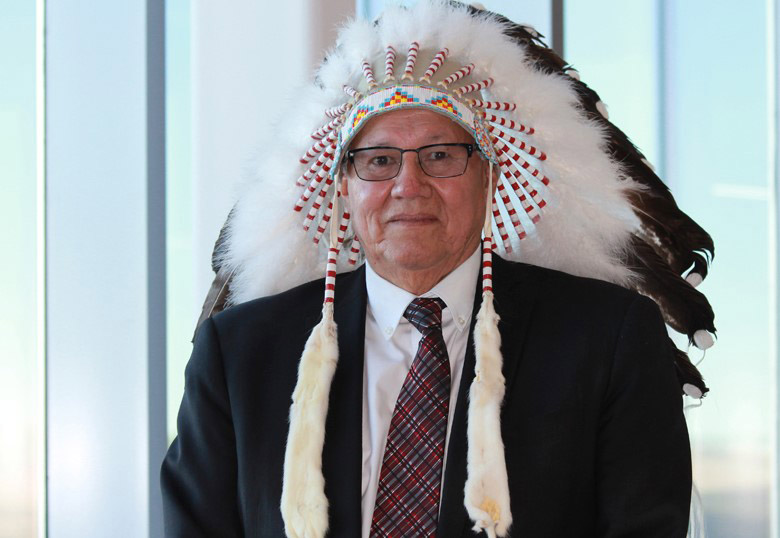He made history in 2019 when he was the first Indigenous person appointed as chancellor at the University of Lethbridge, and throughout his tenure, Charles Weaselhead advanced the University’s path towards truth and reconciliation. ULethbridge will recognize Weaselhead with an honorary degree at Spring 2025 Convocation, Ceremony II, Thursday, May 29, 2:30 p.m. in the Centre for Sport and Wellness gymnasium.

“I was truly honoured to succeed chancellor Weaselhead following a term where he made some very positive and progressive changes in furthering Indigenous inclusivity on campus and incorporating ways of knowing into University culture,” says Chancellor Terry Whitehead (BA '94). “Charles is a leader whose vision and commitment led to important and substantive changes in education and health care within the southern Alberta Indigenous community. He has long been a steadfast proponent of bringing cultures together and creating pathways for youth to access post-secondary education and I’m thrilled to recognize his contributions with an honorary degree.”
Charles Weaselhead
When Taatsiikiipoyii (Talks in the Middle) Charles Weaselhead was named the University of Lethbridge’s 14th Chancellor on March 15, 2019, it marked the first time in the institution’s then 52-year history that an Indigenous person had been appointed to the Chancellor position. A significant moment that continued to advance the University’s path towards truth and reconciliation, Weaselhead’s tenure invoked lasting change and played an instrumental role in securing one of the largest contributions in institutional history.
Weaselhead was born on the Blood Indian Reserve and spent his formative years in the residential school system. He survived the experience, falling back on youth sports as an escape from the conditions into which he was thrust. He also recognized at a young age the value in education, a theme he would champion as he became older.
Having grown up confronted by the challenges facing his community, he sought solutions and became interested in invoking change. In the early 1980s, Weaselhead turned his focus to health issues, advancing initiatives designed to improve health outcomes for Indigenous Peoples. He took on important administrative roles as director of treatment centres Napi Lodge and Poundmaker’s Lodge, director of the Blood Indian Hospital and chief executive officer for the Blood Tribe Department of Health.
In 2004, Weaselhead was elected Chief of the Blood Tribe, a post he would hold for 12 years. During his tenure, he was appointed Treaty 7 Grand Chief and held the Health and Education portfolio for the Treaty 7 Chiefs. At the heart of advocating for his community was a belief in fostering relationships that would support his goals to better the lives of his people. He was a signatory to the Alberta Protocol Agreement on Government-to-Government Relations (2008) and the Memorandum of Understanding on First Nations Education (2010).
One of Weaselhead’s greatest strengths is his collaborative approach that galvanizes community participation and support. By exploring new and innovative partnerships, all while protecting and advancing the sovereignty of First Nations, he is able to tackle dire issues of housing, poverty, community violence and other social and health concerns.
Weaselhead’s appointment as ULethbridge Chancellor afforded the opportunity to build bridges between cultures and create even more pathways for Indigenous youth to access post-secondary education. Taught by his grandfather to walk in both cultures to better understand perspectives, Weaselhead enacted positive change by incorporating traditional Indigenous ceremonial aspects and protocols to University events, and integrating Indigenous perspectives into all aspects of ULethbridge life. He was also at the forefront of helping secure the $15 million MasterCard Foundation contribution to ULethbridge aimed at dismantling education barriers and supporting employment opportunities for Blackfoot youth.
